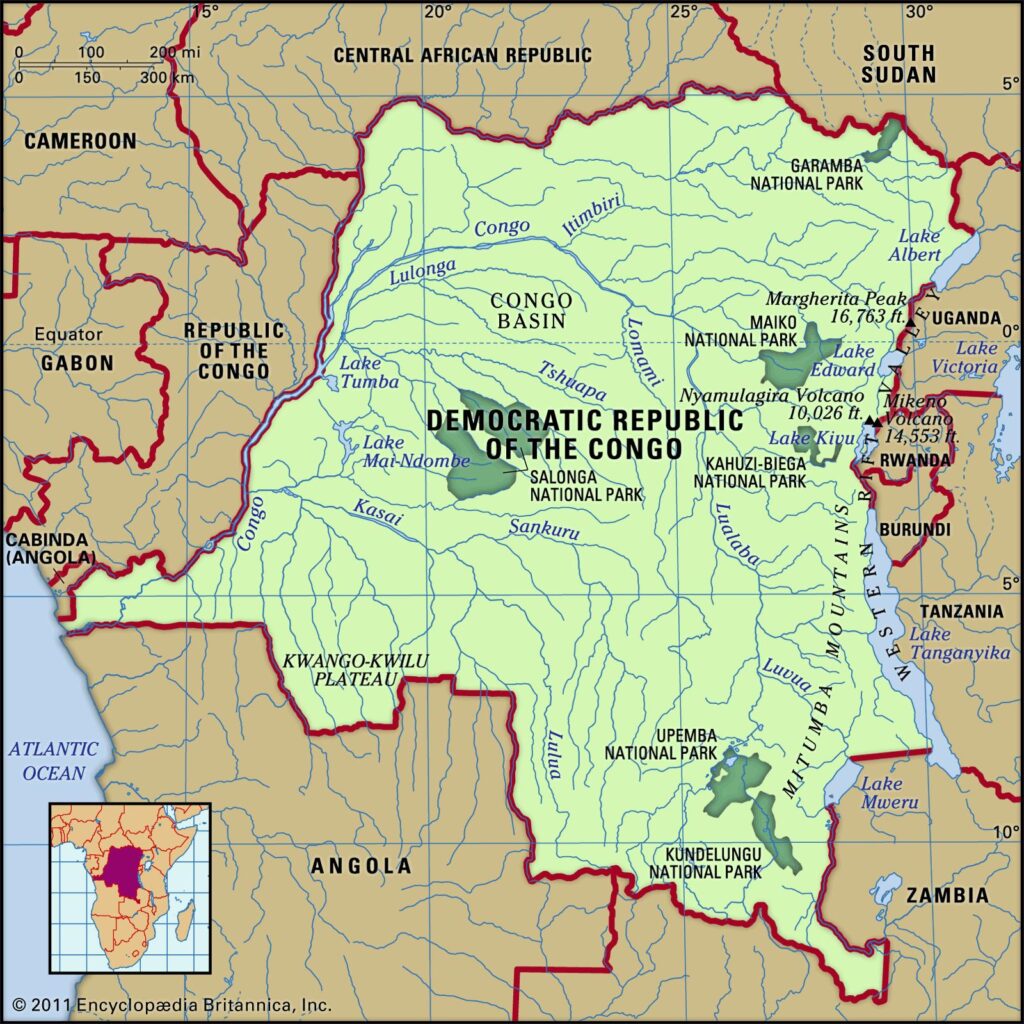In a significant development amidst escalating tensions in the eastern Democratic Republic of the Congo (DR Congo), peace talks between the Congolese government and the M23 rebel group have resumed in Qatar. This diplomatic effort follows a surge in violence in recent weeks, which has exacerbated an already turbulent situation in the mineral-rich region. The renewed clashes have raised alarms among local communities and the international community alike, highlighting the urgent need for a sustainable solution to a conflict that has plagued the area for decades. As negotiators gather in Doha, all eyes will be on the outcomes of these discussions, with hopes that they may pave the way for lasting peace and stability in a country that has witnessed relentless strife.
DR Congo Civil Conflict Escalates as M23 Rebels and Government Engage in New Negotiations
The recent resurgence of violence in eastern Democratic Republic of Congo has prompted renewed efforts for dialogue between the government and the M23 rebel group in Qatar. As clashes continue to disrupt daily life for thousands, both parties have signaled a willingness to explore diplomatic avenues to address underlying grievances and restore stability in the region. Key issues on the negotiation table include security guarantees, political representation, and the disarmament of rebel forces. Observers hope that these discussions might foster a more sustainable peace amid the ongoing humanitarian crisis affecting civilians.
The backdrop of these negotiations highlights the complexity of the conflict, which has roots in historical tensions, ethnic divisions, and struggles over control of mineral resources. Recent reports indicate a rise in displacement, with over 5 million people already affected. The international community remains concerned as the humanitarian situation deteriorates. A table summarizing the humanitarian impact of the conflict sheds light on the urgent need for intervention and support:
| Impact Area | Current Estimate |
|---|---|
| Internally Displaced Persons | 5.5 million+ |
| Children Out of School | 1.7 million |
| Health Care Facilities Affected | 60% |
| Emergency Food Assistance Required | 27 million |
Key Issues and Stakeholder Dynamics at the Heart of Qatar Talks on Eastern DRC Violence
The ongoing negotiations in Qatar highlight a complex web of key issues that shape the landscape of violence in Eastern Democratic Republic of Congo (DRC). At the core of the discussions are crucial themes such as territorial control, humanitarian access, and political representation. Parties involved have expressed the necessity to address the grievances that lead to violence, emphasizing the need for a sustainable framework that incorporates the voices of affected communities. Stakeholders, including regional governments and international organizations, are aware that without addressing the root causes, any agreements may end up being superficial and ineffective.
Furthermore, the dynamics among stakeholders encompass a mix of power plays and alliances that significantly influence the peace talks. Key players include the DRC government, the M23 rebel group, and their respective backers, which can often complicate negotiations. A distinct challenge arises from external actors, including neighboring countries, who possess vested interests in the stability of the region. The following table summarizes the primary stakeholders and their positions in the ongoing dialogues:
| Stakeholder | Position | Interests |
|---|---|---|
| DRC Government | Defensive | Maintain sovereignty & territorial integrity |
| M23 Rebels | Aggressive | Political representation & autonomy |
| Neighboring Countries | Strategic | Regional stability & influence |
| International Organizations | Neutral Mediators | Humanitarian assistance & peacekeeping |
Recommendations for a Sustainable Peace: Addressing Root Causes and Strengthening Regional Cooperation
Efforts to achieve lasting stability in the Democratic Republic of the Congo (DRC) must focus on addressing the complex interplay of socio-economic grievances, ethnic tensions, and political disenfranchisement that fuel violence and rebellion. Key strategies include:
- Enhancing Economic Opportunities: Investing in local infrastructure and job creation can alleviate poverty, reducing the appeal of armed groups like the M23.
- Promoting Inclusive Governance: Empowering marginalized communities through political representation and dialogue can foster a sense of belonging and mitigate conflict.
- Supporting Civil Society Initiatives: Engaging local organizations in peacebuilding and reconciliation efforts can strengthen community ties and resilience against extremism.
Regional cooperation is vital for a sustainable peace framework. Collaborations between the DRC and its neighbors can facilitate shared security and economic initiatives. Effective regional strategies might involve:
- Joint Security Operations: Regional forces collaborating to monitor border areas at risk of rebel activities.
- Cross-Border Trade Agreements: Economic ties that encourage legitimate trade can undermine the profitability of armed conflict.
- Regular Diplomatic Forums: Establishing consistent platforms for dialogue among regional leaders to address pressing security issues and reinforce commitments to peaceful resolutions.
Here’s an overview of potential areas of focus for regional collaboration:
| Area | Action | Outcome |
|---|---|---|
| Security | Joint military exercises | Enhanced preparedness against insurgency |
| Economics | Incentives for cross-border investment | Improved regional stability and prosperity |
| Governance | Regular summits for policy alignment | Consistent and unified approach to peacebuilding |
In Retrospect
In conclusion, the resumption of talks between the DR Congo government and M23 rebels in Qatar marks a crucial step toward addressing the ongoing conflict that has intensified in the eastern regions of the country. As both sides seek to find common ground amidst renewed violence, the international community remains watchful, hopeful for a diplomatic resolution that could alleviate the suffering of countless civilians caught in the crossfire. With the stakes higher than ever, the outcome of these discussions could significantly impact the stability of the region. As negotiations unfold, all eyes will be on Qatar, where the future of peace in the DR Congo hangs in the balance.
